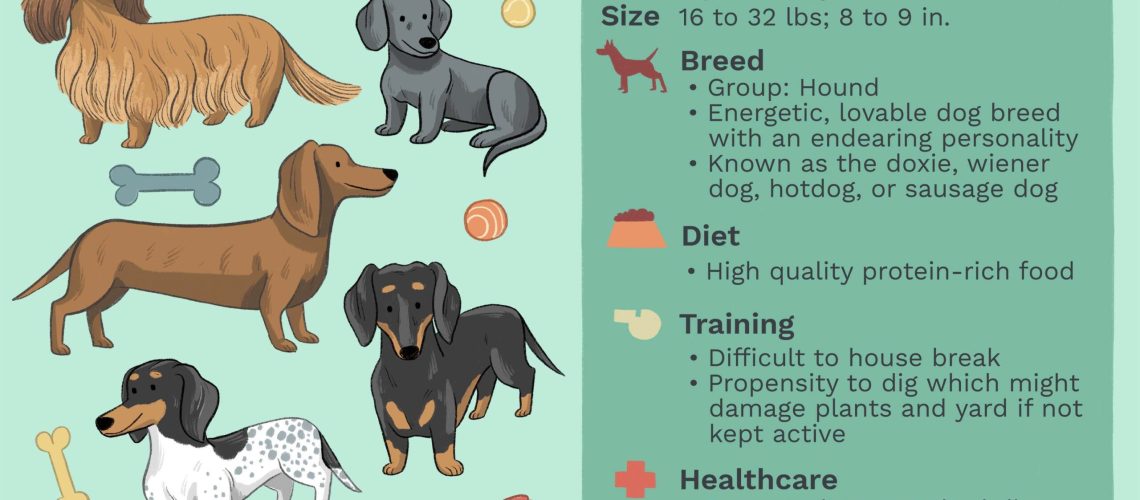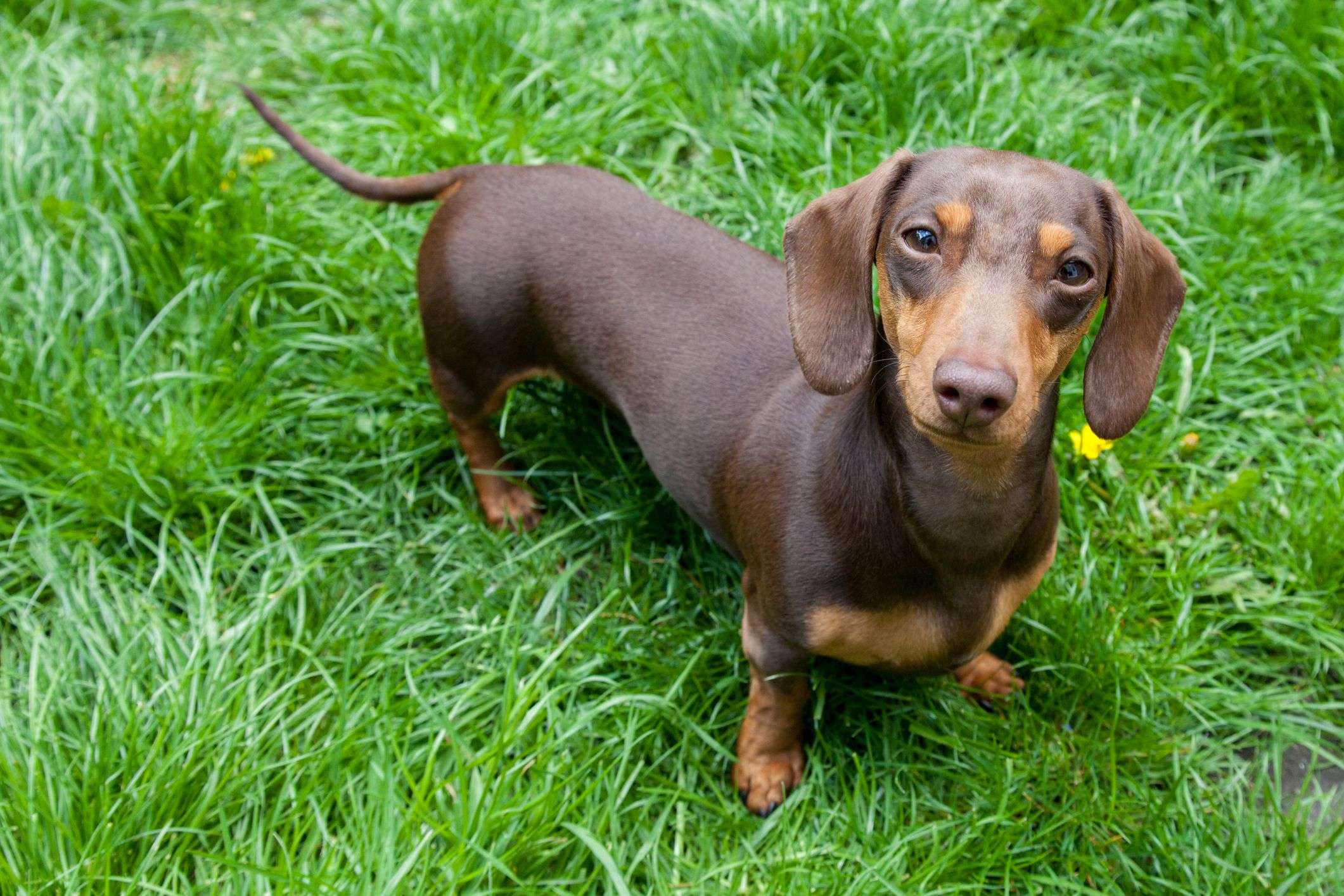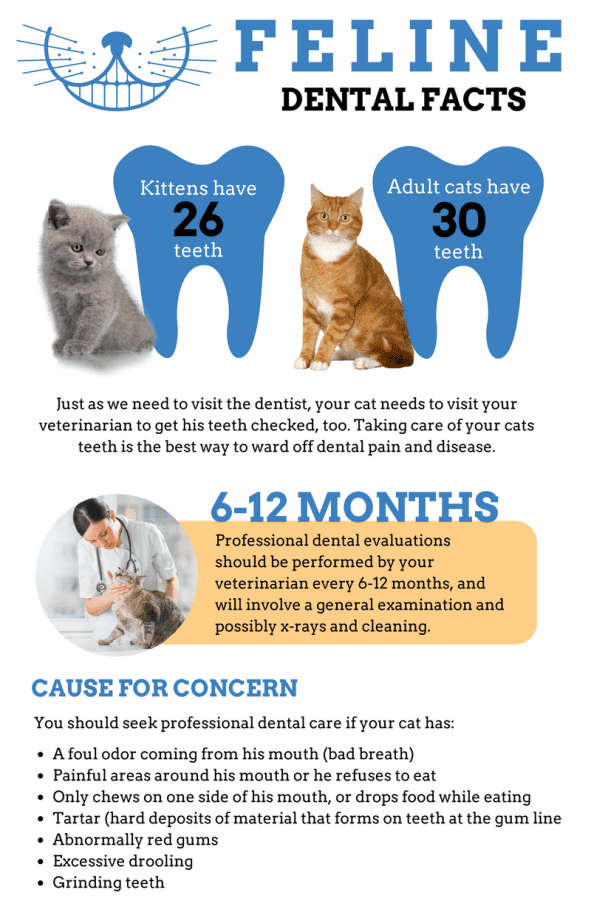Key Takeaways:
- Mini Dachshunds are small-sized dogs known for their long bodies and short legs.
- They have a friendly and curious personality, making them great companions for families and individuals.
- Regular exercise is essential for Mini Dachshunds to prevent obesity and maintain their overall health.
- Due to their elongated spine, it is important to handle them carefully and avoid activities that may strain their back.
- Proper grooming, including regular brushing and dental care, is necessary to keep their coat and teeth in good condition.
Do you love dogs? Are you interested in learning more about a unique and adorable breed that will steal your heart? Look no further than the Mini Dachshund! This captivating dog breed is known for its long body, short legs, and playful personality. But there's so much more to discover about these little furry friends. By delving into the world of Mini Dachshunds, you'll not only gain insight into their charming characteristics but also uncover valuable tips on how to care for them properly. Whether you're a dog enthusiast or considering bringing one of these lovable companions into your home, understanding the ins and outs of Mini Dachshunds is essential. So, let's explore this topic together and unlock the secrets behind these pint-sized pups! Get ready to fall in love with the Mini Dachshund's irresistible charm and learn how to provide them with the best care possible. Get ready for a doggy adventure like no other!
What is a Mini Dachshund?
A Mini Dachshund is a small breed of dog that belongs to the hound family. They are also known as "wiener dogs" or "sausage dogs" because of their long and low bodies. Mini Dachshunds were originally bred in Germany to hunt badgers, but today they are popular companion pets.
Mini Dachshunds have a unique appearance with their short legs, long body, and floppy ears. They come in different coat types including smooth, wirehaired, and longhaired. Their coats can be various colors such as black, tan, red, or dapple.
Size
Mini Dachshunds are smaller than standard Dachshunds. On average, they weigh between 8-11 pounds (3.6-5 kilograms) and stand about 5-7 inches (13-18 centimeters) tall at the shoulder.
Temperament
Mini Dachshunds are known for their lively and affectionate nature. They are often described as being brave and curious. These dogs can be quite stubborn at times but are also very loyal to their families.
List of Mini Dachshund traits:
- Curious
- Lively
- Affectionate
- Brave
- Loyal
Fun Fact:
The word "Dachshund" means "badger dog" in German!
How long do Mini Dachshunds usually live?
The average lifespan of a Mini Dachshund is around 12-16 years. However, with proper care and a healthy lifestyle, some Mini Dachshunds have been known to live up to 20 years!
Factors that can affect the lifespan of a Mini Dachshund include genetics, diet, exercise, and overall health. Regular veterinary check-ups and vaccinations are important for maintaining their well-being.
Healthcare
Mini Dachshunds are prone to certain health issues such as back problems, obesity, dental disease, and joint conditions. It is crucial to provide them with a balanced diet and regular exercise to keep them in good shape.
Tips for a Long Life:
- Feed your Mini Dachshund a high-quality diet
- Keep them at a healthy weight
- Provide regular exercise
- Schedule annual check-ups with a veterinarian
- Practice good dental hygiene
Physical characteristics of Mini Dachshunds
The physical characteristics of Mini Dachshunds make them easily recognizable. They have long bodies, short legs, and long ears that hang down on the sides of their heads.
Their coats can be smooth (short hair), wirehaired (harsh and wiry), or longhaired (soft and silky). The most common colors are black, tan, red, or dapple (a mix of colors).
Body Shape
The unique body shape of Mini Dachshunds is adapted for their original purpose of hunting badgers. Their elongated bodies allow them to enter burrows easily while their short legs provide agility for maneuvering underground.
Coat Types
The three coat types of Mini Dachshunds have different grooming requirements. Smooth-coated Dachshunds require minimal grooming, while wirehaired and longhaired Dachshunds need regular brushing to prevent matting.
Traits of Mini Dachshund coats:
- Smooth: Short and sleek
- Wirehaired: Harsh and wiry
- Longhaired: Soft and silky
Are Mini Dachshunds easy to train?
Training a Mini Dachshund can be a bit challenging due to their independent nature. However, with patience, consistency, and positive reinforcement techniques, they can become well-behaved companions.
Potty Training
Potty training is an essential part of any dog's training routine. With consistent schedule and positive reinforcement, Mini Dachshunds can learn where it is appropriate to do their business.
Socialization
Socializing a Mini Dachshund from a young age is important to ensure they are comfortable around people, other animals, and various environments. Exposing them to different situations helps prevent fear or aggression as they grow older.
Tips for Training:
- Use positive reinforcement (treats, praise) rather than punishment
- Keep training sessions short and fun
- Be patient and consistent with commands
- Enroll in obedience classes or seek professional help if needed
Mini Dachshunds and other pets
Mini Dachshunds can get along well with other pets if properly socialized and introduced. However, their hunting instincts may make them prone to chasing small animals like birds or rodents.
Dogs
Mini Dachshunds generally enjoy the company of other dogs, especially if they have been raised together. It is important to supervise their interactions and ensure that all dogs involved are comfortable and safe.
Cats
Introducing a Mini Dachshund to a cat should be done gradually and under supervision. Some Mini Dachshunds may have a strong prey drive towards cats, so it is crucial to monitor their behavior and provide positive reinforcement for calm interactions.
Tips for Introducing Pets:
- Start with short supervised meetings
- Use positive reinforcement when they interact calmly
- Provide separate spaces for each pet initially
- Gradually increase the duration of interactions
- Seek professional advice if there are any signs of aggression or discomfort
Exercise needs of Mini Dachshunds
Although Mini Dachshunds have short legs, they still require regular exercise to maintain their overall health and prevent weight gain. However, it's important to be mindful of their backs due to their long bodies.
Walks and Playtime
Daily walks are beneficial for Mini Dachshunds as it helps stimulate their minds and keep them physically active. They also enjoy interactive play sessions such as fetch or puzzle toys that challenge their problem-solving skills.
Avoiding Strenuous Activities
Jumping or activities that put strain on the back should be avoided to prevent spinal injuries. It is important to provide ramps or stairs for them to access furniture or beds without jumping.
Exercise Tips:
- Take them for regular walks or play fetch in a safe area
- Provide mental stimulation with puzzle toys or treat-dispensing toys
- Avoid activities that involve jumping from heights
- Use ramps or stairs to help them access elevated surfaces without straining their backs
Common health issues in Mini Dachshunds
Mini Dachshunds are prone to certain health issues, some of which are related to their unique body shape and genetics. Regular vet check-ups and preventive care can help detect and manage these conditions early on.
Back Problems
The long back of Mini Dachshunds puts them at risk of intervertebral disc disease (IVDD), which occurs when the discs between the vertebrae bulge or rupture. This can cause pain, paralysis, or difficulty walking.
Obesity
Due to their love for food, Mini Dachshunds can easily become overweight if not provided with a balanced diet and regular exercise. Obesity can lead to various health problems, including joint issues and heart disease.
Tips for Health Maintenance:
- Maintain a healthy weight through proper diet and exercise
- Avoid activities that put strain on the back
- Regularly brush their teeth and provide dental care
- Schedule annual check-ups with a veterinarian for early detection of any health issues
- Consider pet insurance to help cover potential medical expenses
In conclusion, Mini Dachshunds are small and lively dogs with distinct long bodies and short legs. They require regular exercise, proper grooming, and a loving environment to thrive as pets.
What is the personality of a mini dachshund?
Miniature dachshunds are excellent choices for family pets and are recognized for their inquisitive nature and playful sense of humor. They thrive on human companionship and enjoy being pampered. When introduced at a young age, dachshunds typically get along well with other animals.
Do mini dachshunds bark a lot?
Dachshunds were originally bred for hunting purposes, which is why they have a tendency to bark. Despite their small size, their bark can be quite loud. Additionally, many Dachshunds are easily affected by changes in their surroundings, which can result in excessive barking.
What you need to know about mini dachshunds?
Miniature dachshunds have a reputation for being curious and attentive. They possess sharp senses that make them great at guarding and being aware of potential intruders. Although they may be cautious of unfamiliar individuals at first, their friendly and sociable personality usually emerges once they feel at ease.
Are mini dachshunds easy to potty train?
Dachshunds are known for being particularly challenging to train when it comes to housebreaking. In fact, they are ranked among the top 20 toughest breeds to housebreak. Therefore, it is important to begin their training early on in order to prevent unwanted accidents and surprises in the future.
Are mini dachshunds high maintenance?
Mini dachshunds do not need a lot of exercise, but they do require daily mental stimulation and physical activity. Grooming them is relatively easy, depending on their type of coat. Additionally, it is important to provide them with early and consistent training and socialization.
Do miniature dachshunds have problems?
The unique body shape of all six types of dachshunds, including Standard Long-, Smooth-, and Wire-haired, as well as their miniature versions, puts them at a high risk for spinal and neurological problems that often necessitate surgical intervention.

















